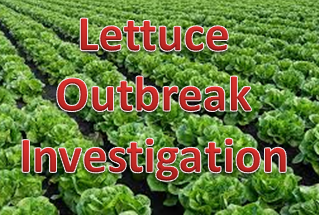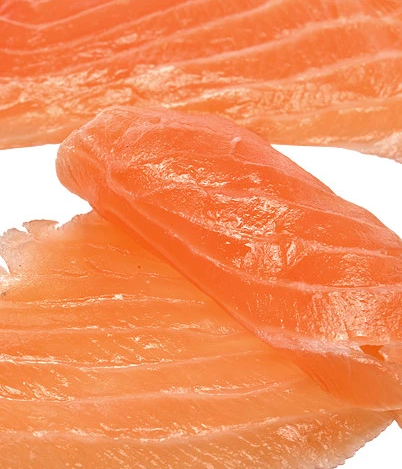Romaine lettuce from the Salinas, California growing region is a likely source of an outbreak of illnesses caused by E. coli O157:H7, according to the FDA and its investigating partners (CDC, and state health authorities). According to the FDA, the data showed that ill people in Maryland were exposed to romaine lettuce harvested in Salinas, California. Additionally, FDA is investigating two other E. coli outbreaks, each caused by strains that are different from each other and different from the larger outbreak. The FDA is investigating two other E. coli outbreaks, each caused by strains that are different from each other and different from the larger outbreak. One of the additional outbreaks, in Washington state, is linked to romaine lettuce, and the other outbreak, with cases in the U.S. and Canada, is linked to Fresh Express Sunflower Crisp Chopped Salad Kits. As part of these investigations, FDA and state partners are conducting traceback investigations to trace romaine exposures to the source. Currently, the tracebacks on all three outbreaks have identified a common grower in Salinas. FDA, CDC, and California partners are deploying a team to conduct new investigations at several ranches used by this grower as we try to identify the source of the contamination. @ https://www.fda.gov/food/outbreaks-foodborne-illness/investigation-e-coli-o157h7-outbreak-linked-romaine-salinas-california-november-2019?utm_campaign=OutBreak_Romaine_Ecoli_12122019&utm_medium=email&utm_source=Eloqua
ruth
FDA continues to warn against eating romaine from Salinas; farm investigations continue
ruth
Scientists from Cornell University developed a modeling tool to assist the frozen food industry with understanding and managing listeriosis risks. The work was published in J. Food protection (vol 82,12, 2019). A quantitative microbial risk assessment model FFLLoRA (Frozen Food Listeria Lot Risk Assessment) was developed to assess the risk due to L. monocytogenes (LM) contamination in frozen vegetables consumed as a ready-to-eat food. The model was designed to estimate listeriosis risk per serving and the number of illnesses per production lot of frozen vegetables contaminated with LM. Factors evaluated include individual facility factors such as lot size, the prevalence of LM contamination, and consumer handling before consumption. Low-level of LM in frozen vegetables did not result in illnesses. Classification tree analysis emphasized that the initial concentration of LM in the lot, the temperature at which the product is thawed, and whether a serving is cooked as the main predictors for illness from a lot. Overall, the FFLLoRA provides frozen food manufacturers with a tool to assess LM contamination and consumer behavior when managing rare and/or minimal contamination events in frozen foods. More testing increased the probability of finding Listeria contamination. @ https://www.researchgate.net/publication/337382870_An_Assessment_of_Listeriosis_Risk_Associated_with_a_Contaminated_Production_Lot_of_Frozen_Vegetables_Consumed_under_Alternative_Consumer_Handling_Scenarios
PDF | Frozen foods do not support the growth of Listeria monocytogenes (LM) and should be handled appropriately for safety. However, consumer trends… | Find, read and cite all the research you need on ResearchGate
ruth
The FDA announced on its website that CATSMO LLC. Of Wallkill, NY, recalled Cold Smoked Salmon because it has the potential to be contaminated with Listeria monocytogenes. The recalled product was distributed in 11 states through retail stores and direct delivery as follows: NY, CT, NJ, MN, NC, FL, VA, MA, IL, PA, and Washington D.C. The product comes in a vacuum-sealed plastic package in whole fillets, specialty cuts, 4 oz., 8oz., or 1lb. sizes and are either plain or flavored. No illnesses have been reported to date in connection with this issue. The potential for contamination is a result of a routine FDA environmental sampling and analysis. Out of an abundance of caution, the company has decided to conduct an extensive corrective action plan and verification program so production can resume as soon as possible. @ https://www.fda.gov/safety/recalls-market-withdrawals-safety-alerts/catsmo-llc-recalls-smoked-salmon-because-possible-health-risk?utm_campaign=CATSMO%20LLC.%20Recalls%20Smoked%20Salmon%20Because%20of%20Possible%20Health%20Risk&utm_medium=email&utm_source=Eloqua
CATSMO LLC. Of Wallkill, NY, out of an abundance of caution, is recalling Cold Smoked Salmon because it has the potential to be contaminated with Listeria monocytogenes.



